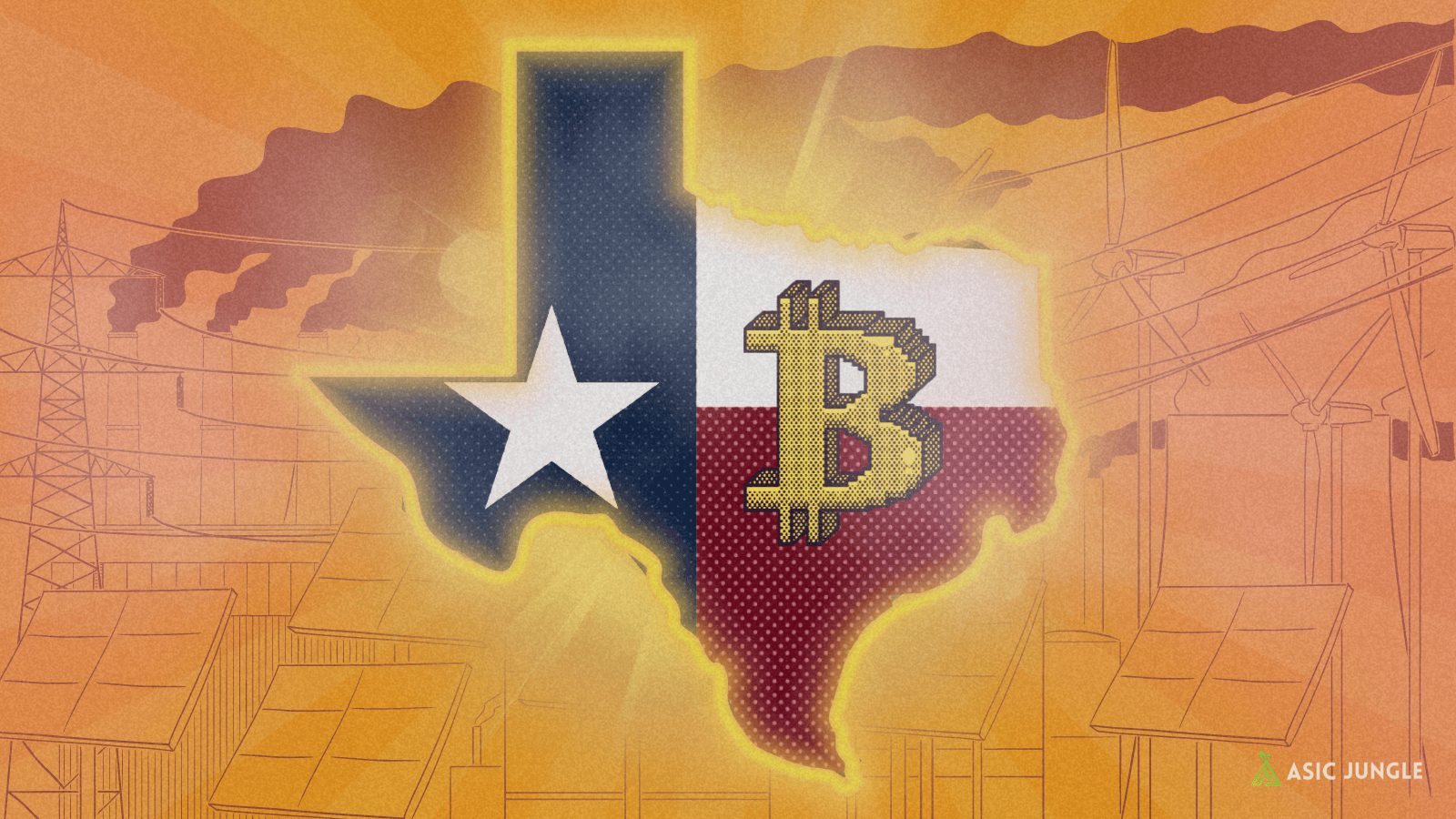Proposed legislation 1751 hinders growth of the Bitcoin mining industry in Texas. Critics argue that the bill unfairly targets the Bitcoin mining industry and fails to recognize its unique ability to address the needs of the state's power grid.
In recent years, Texas has become a beacon of the Bitcoin mining landscape. However, new anti-innovation and anti-free market legislation is threatening to pass. Senate Bill 1751 was introduced to the Texas Senate Committee in early March 2023, and it represents some of the most restrictive legislation seen in the industry so far.
One of the key aspects of the bill is that, if it passes, it would limit Bitcoin miners’ access to the demand response program run by the Electric Reliability Council of Texas (ERCOT), in addition to changing how mining earnings are taxed. Currently, Texas-based miners are offered financial incentives for not using electricity when the demand is high in the state, in order to prevent the grid from becoming overloaded.
Let’s take a closer look at the specifics of Bill 1751 and who stands to be affected by this regressive proposed legislation.
What’s included in Bill SR 1751?
Bill 1751 was pushed by three Republican senators. It would largely remove tax savings on Bitcoin mining property, and would also make miners register to be flexible load operators for the grid operator. The legislation would limit miners’ participation in demand response programs to ten percent of the total load requirements.
To those who oppose the bill, the ten percent limit on demand response is an arbitrary cap. Bitcoin mining’s unique ability to shut off power instantly and come back quickly make it uniquely positioned to address the needs of the grid, and this cap inhibits its ability to do so.
Who stands to be affected by Bill 1751
Putting a cap on demand response payments will affect Bitcoin mining operations during periods of extreme weather in particular. Texas’ power grid is subjected to strain during sweltering summer days when everyone has their AC blasting, and on cold winter days—particularly because much of Texas’ infrastructure isn’t adequately winterized and many facilities are poorly insulated.
If Bitcoin miners’ ability to receive response payments is limited, they’ll have to choose between mining unprofitably at high energy prices, or sitting out without compensation. Riot Platforms, who operate in Central Texas, have said that this legislation would reduce their ability to support economic growth programs and create local jobs.
Riot Platforms is the largest Bitcoin mining company in the state, and has generated hundreds of long-term, high-paying jobs at their facility in Rockdale since 2020. The company has partnered with postsecondary institutions to train technicians for high-paying new jobs, and pays significant local taxes already.
Bitcoin mining operations have had this kind of revitalizing effect on small towns across the state in recent years, which should be celebrated. Bill 1751 proposes reducing tax incentives for new mining operations, which could limit the amount of mining growth in the state.
Power is a hot-button topic in Texas
Texas’ energy grid has been criticized for extensive outages and surge pricing, particularly in the wake of the 2021 Texas power crisis. However, it’s no coincidence that so much mining activity is centralized in the Lone Star State. Bitcoin mining tends to flow to where the cheapest electricity prices are, and wholesale electricity in Texas is particularly affordable during typical conditions.
In West Texas, many new renewable energy farms have emerged recently, and there isn’t enough infrastructure to deliver this power to major cities. This is referred to as “stranded” energy, which contributes to the low energy prices in West Texas. These underused renewable energy sources have attracted Bitcoin miners who relish the opportunity to embrace green energy options.
Bitcoin mining advocates in the state rightly claim that capitalizing on underused renewable energy helps the grid. Compared to other industries, Bitcoin mining operations also have the enviable ability to halt their power consumption on a dime when needed, which is beneficial for the state when usage cutbacks are needed.
The bill may be rooted in misinformation
Those looking to restrict Bitcoin mining in the state have voiced their worries about how the growing energy demands of Bitcoin’s proof-of-work mechanism could overwhelm the grid, ignoring the fact that Bitcoin mining operations are generally happy to participate in programs where their consumption is reduced at strategic times. Some critics have taken issue with the amount paid out to miners in exchange for curtailing energy use, too.
During peak demand, Texas’ energy grid uses about 80 000 megawatts of power. Crypto mining in Texas uses around 2000 megawatts, or around 2% of the state’s total capacity. It’s true that prospective mining enterprises have proposed to add over 30 000 megawatts into ERCOT’s queue in the coming years, which has drawn concern from legislators. However, only a fraction of this usage will actually likely be added to the state’s mining load.
Unfair targeting of the Bitcoin mining industry
Ultimately, Bill SR 1751 is rooted in a belief that Bitcoin should be subject to different sets of standards than other industries that use similarly large amounts of electricity, for seemingly arbitrary reasons. Recently, Bitcoin mining-friendly states like Missouri have seen new bills that expressly prohibit energy policies that specifically target the Bitcoin mining industry.
All industries in Texas that use large amounts of power have the opportunity to use the grid operator’s demand response programs, and Bitcoin mining operations are simply signing up for pre-existing programs and playing by the rules. To limit Bitcoin miners from accessing demand response programs because they’re particularly well-suited to benefit from these programs is an unfair move of the goalposts, mining proponents argue.
Some Bitcoin mining critics point to the fact that Bitcoin miners are already very sensitive to changes in power prices, and largely wouldn’t be using energy at times when prices are surging anyway. Proponents of legislation like Bill 1751 allege that for miners to be rewarded for not using power at times when they would be less incentivized to use this power anyway represents a kind of double dipping. This kind of argument is plainly anti-free market, however.
For Bitcoin miners to not be allowed to participate fully in demand response credit programs simply because they are well-suited to modify power usage in response to grid conditions is unfair and unnecessary. Like any other industrial operation, Bitcoin miners should be rewarded for agreeing to curtail power usage per the state’s request.
A bump in the road for Texas
It’s a simple truth that Bitcoin mining requires a significant amount of energy. States like Texas have abundant access to renewable power, and should embrace the opportunities that Bitcoin mining offers to help bolster renewable power sources and stabilize the grid.
Bitcoin mining can be conducted in an environmentally-responsible fashion, given the state’s extensive energy infrastructure. Bitcoin mining companies have advantages over many other industries that use a lot of energy—they can modify their usage with great flexibility, in accordance with a number of factors.
Bitcoin mining can make use of stranded energy that would otherwise go to waste, and can avoid overloading the grid during difficult weather. This nimble energy use should be celebrated, rather than penalized. Most importantly, Bitcoin miners in Texas should have the right to be treated like any other industry.
Access to abundant and affordable power is one of the main contributing factors to mining operations’ success. Another key factor is access to the most powerful mining rigs at the best possible prices. For years, Asic Jungle has been supporting the explosive growth of Bitcoin mining in the United States and around the world by helping miners fulfill their hardware procurement needs, no matter at what scale.






